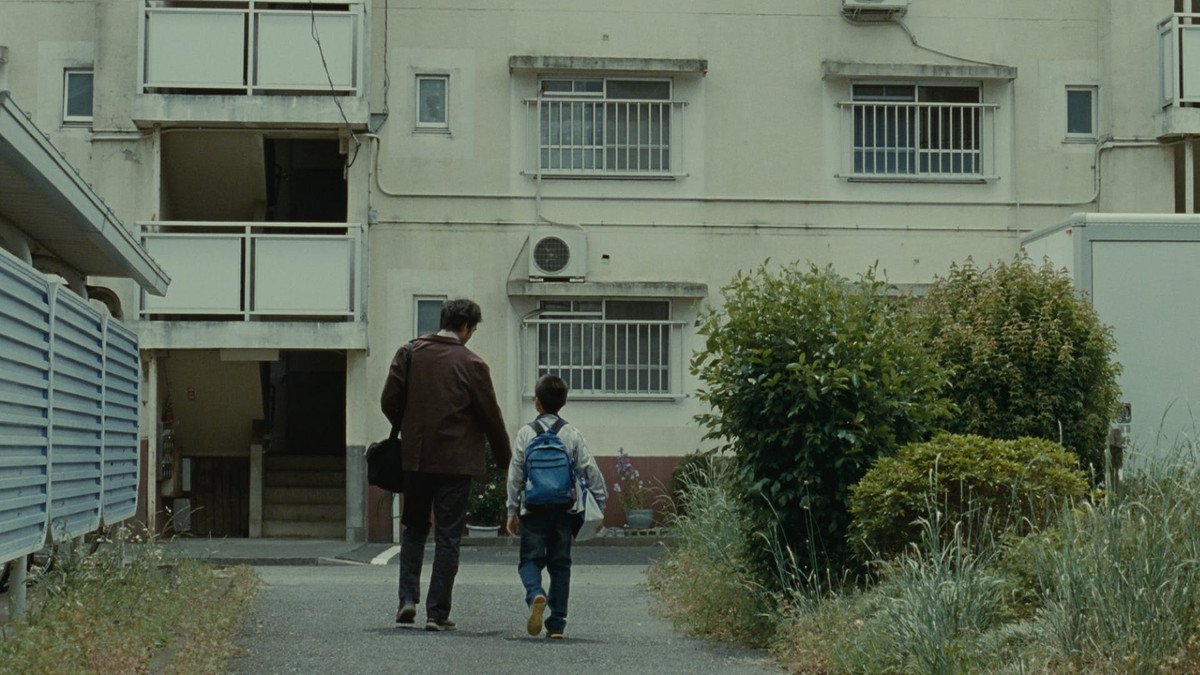The family as a social institution and the fundamental unit of society plays a significant role in shaping us as individuals, as well as influencing our values and beliefs. But as acclaimed Japanese director Hirokazu Kore-eda’s After the Storm demonstrates, familial bonds are constantly subject to the test of everyday pressures and the tensions that arise from the disparity between expectation and reality in the giving and taking of love. Japan’s changing family structure from the extended to the nuclear, diminishing familial support, and increasingly hectic lifestyles—particularly those of working adults—have gradually distanced family members from each other.
After the Storm makes for an endearingly wistful addition to Kore-eda’s repertoire, of which the intricacies and complications of familial relationships remain a recurring theme, bringing into focus portraits of family life that we tend to take for granted. It is a poignant, nuanced exploration of the limits and complexities of love, as well as the forces that either hold a family together or pull them apart. Veteran actress Kirin Kiki imbues her maternal character Yoshiko with subtle wit and resilience, most notable for the contemplative line: “I’ve never loved anyone deeper than the sea.” Society has long established the expectation of a mother’s love as selfless or even transcendent, but could love, even that of kinship, ever be truly unconditional? How does one measure the depth and breadth of love when its affective, intangible nature resists quantification? Is it possible for love to be reciprocated in equal measure?
Love is perennially in demand, yet invariably limited in supply. It is also susceptible to wear and tear by the passage of time and life’s trials and tribulations. The film examines the value of the family institution and the manifestations of love within it as the structure of a family changes or disintegrates. The protagonist Ryota (Hiroshi Abe) struggles to come to terms with the decline of his erstwhile reputation as a fledgling, award-winning writer. He languishes in a complacent existence, barely making ends meet with his side job as a private detective, while his precarious relationship with his ex-wife Kyoko (Yoko Maki) is further strained when he constantly fails to settle child support payments on time. Ryota’s lackadaisical attitude – compounded by his gambling habits—intensifies Kyoko’s reluctance to allow him regular visits to their son Shingo (Taiyo Yoshizawa). Extending from his occupational sleuthing pursuits, Ryota develops a preoccupation with trailing Kyoko’s whereabouts, and is disappointed to discover that she has moved on with a new partner. Anxious of being potentially estranged from Shingo, Ryota attempts to hold on to their father-son relationship, albeit with limited success in conveying his affection for Shingo.
Incidentally, a rainstorm disrupts Kyoko and Shingo’s plans of returning home after a customary visit to Ryota. Sensing an opportunity, Ryota manages to convince mother and son to stay the night at his residence. Time spent together during the late-night rainstorm offers possibilities for reconciliation and perhaps making amends, but instead, clearer than ever, Ryota is confronted with the grievances that drove them apart in the first place. The dull, continuous lashing of the rain outside seems to fade into the background, amplifying the awkwardness and resentment between Ryota and Kyoko. Ryota is eventually made to realize that attempting to atone for the past is an exercise in futility, and that his character flaws are partly responsible for the irreparable rift between Kyoko and himself. As disillusionment sets in, Ryota is faced with the impossibility of recovering the past—sometimes letting go might be a better way out. He decides to make the most of the present, and takes the opportunity to bond with his son by sneaking out to his childhood hideout in the playground to spend the rainy night together. Ryota exudes an air of detachment and projects a hesitant ambivalence in his affection for his family, despite his best efforts in mending frayed ties.
The characters impart an effortlessly relatable quality—the affable yet sometimes quirky grandmother, the reserved yet loving father, the protective yet vulnerable mother, the inquisitive yet reticent son – each navigating life’s contradictions harboring equally contradicting inner dilemmas. An understated “character” in the film is the danchi, the public housing complex in which Ryota and Yoshiko reside. The modest concrete structure stands silently in the background: a reassuring, abiding presence amid the unsettling shifts in the relationship dynamics between the members of Ryota’s family. It is also emblematic of director Kore-eda’s fond memories of growing up in a danchi complex; he revealed in an interview that the danchi he chose to be featured in the film is located in Asahigaoka, Kiyose City in west Tokyo, where he moved to during his elementary school years.
Built in the 50s to the 70s, danchi complexes housed an expanding Japanese population in the post-war modernizing years. Once perceived as the ideal abode for their ostensibly progressive, modern architecture and well-organized configuration, danchi complexes are currently facing an inevitable decline as contemporary Japanese society turns away from boxed-up units in favor of newer types of housing. As a growing number of danchi estates are being earmarked for redevelopment or demolition, the prominence of the danchi in the film offers glimpses of an imminently fading landscape of contemporary Japan. Besides appearing in the film’s backdrop as a nod to the familiar residential fixture now well past its prime, the predicament of the danchi somehow parallels the characters’ attitude to life: the family appears content in their mediocrity, settling for the mellow, comfortable reliability of their mundane lives.
As the storm subsides towards the end of the film, the grey skies clear, but a dreary, cold atmosphere lingers—and life goes on.

